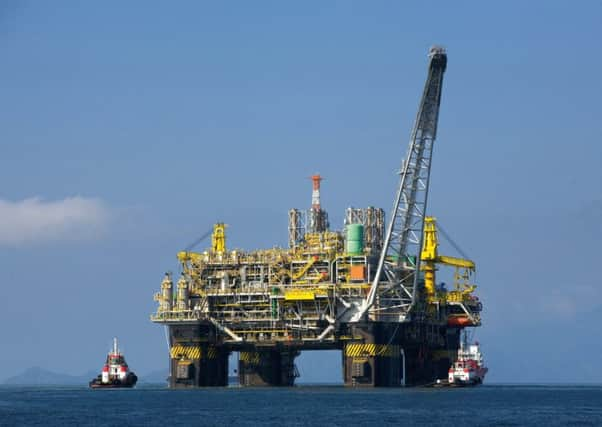Less in reserve for North Sea as debate rages on
This article contains affiliate links. We may earn a small commission on items purchased through this article, but that does not affect our editorial judgement.


For an industry based on a commodity which has taken tens of millions of years to be created, things can change quickly in the oil and gas sector.
At the time of the 2014 Scottish referendum the price of a barrel of Brent crude extracted from the North Sea was trading at a little under $92.
Advertisement
Hide AdAdvertisement
Hide AdSince then it has fallen to as low as $27.88 before recovering some of the lost ground to stand at around $50 last week.
The steep fall, coupled with the political uncertainties triggered by the Brexit vote, have had significant implications for the North Sea oil and gas industry.
With a second independence referendum now up for discussion, analysts at Edinburgh-based consultancy Wood Mackenzie have done some number-crunching to look at how the landscape has shifted for an industry which was one of the key debating points of the 2014 vote.
While in the darkest hours of the price crash last year questions were raised over whether the relatively high cost North Sea industry could survive, Wood Mackenzie estimates that fields in Scottish waters are still worth some £44 billion today.
It reckons that at the beginning of this year the UK Continental Shelf held 6 billion barrels of oil equivalent in recoverable reserves, of which 5.3 billion – or 88 per cent – lie in Scottish waters. That figure includes producing fields, fields under development which will start production soon and “ready-to-go” projects awaiting final investment decisions.
But it also estimates that commercial reserves in UK waters have fallen by some 30 per cent since 2014, blamed mainly on the very low level of commercial discoveries as exploration activity has slumped due to the low oil price.
Some 1.3 billion barrels have also been removed from Wood Mackenzie’s estimates through downgrades on developed and undeveloped fields, mainly as a result of the lower oil price.
Advertisement
Hide AdAdvertisement
Hide AdOn top of recoverable reserves the latest figures include 4.3 billion barrels of “contingent resources” in Scottish waters which could potentially be recovered depending on factors including cost reductions and the oil price. There are also thought to be a further 1.3 billion barrels in discoveries “yet to be made” although progress with those is likely to depend on exploration drilling picking up significantly from its current low levels.
In total, the estimates suggest that some 11 billion barrels of reserves and resources lie in Scottish waters, but Wood Mackenzie points out this sits alongside the obligation to decommission the majority of fields, equating to 80 per cent of the total UK decommissioning bill.
“Companies will be looking for reassurances that, should Scotland vote for independence, they will continue to have access to the decommissioning tax relief they currently receive,” they stress.
While the figures make for relatively gloomy reading there are some positives for the North Sea. As Oil & Gas UK said in its Business Outlook Report 2017 earlier this month, the industry is better placed after a two-year efficiency drive. Domestic oil and gas production is still growing, unit costs are improving and the basin is “more resilient and globally competitive” despite commodity prices remaining lower.
Capital expenditure costs for future projects are estimated to have fallen by 25 per cent, lowering the break-even price and increasing the likelihood of getting the go-ahead.
On the back of the recovery in the oil price there are also definite signs of improving corporate confidence around the North Sea.
In recent months more than $6bn of assets have changed hands including the $1.24bn acquisition of Ithaca Energy by Israeli-based Delek Group and Royal Dutch Shell’s $3.8bn disposal of North Sea assets to E&P company Chrysaor. BP has also agreed to sell stakes in the Magnus oil field and the Sullom Voe Terminal to EnQuest in an $85m deal but has also restated its commitment to the North Sea industry with a promise to be a “jobs generator” for the struggling oil economy.
Advertisement
Hide AdAdvertisement
Hide AdLast week’s revelation that Ineos was in talks with BP to buy the Forties pipeline was also seen as a welcome development given the importance of the pipeline network to the basin.
Further sustained gains in the oil price could also drive more exploration and development activity. But with the uncertainties around Brexit and a second independence referendum, there are concerns firms will choose to sit on their hands until the picture on issues such as tax and decommissioning liabilities become much clearer.
“Critically, political uncertainty could deter investors from committing to new projects. There is a risk that time-critical field developments may become uneconomic if delayed in the short term,” Wood Mackenzie points out.
“With new investment and jobs at stake, and the complicating factors of boundaries and decommissioning tax relief, much is at stake.”